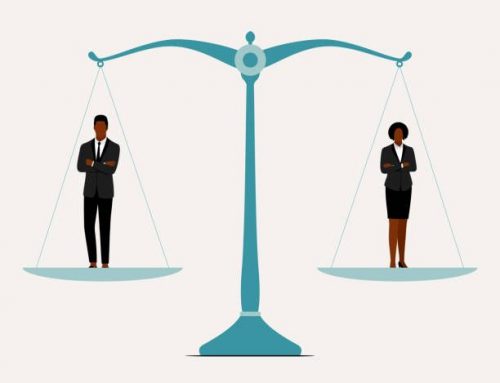Over the last eight weeks, along with my colleague, Aine Crossan, I have met and interviewed numerous leaders from the cleantech and sustainability space that are addressing the climate crisis head on.
They all have different motivators. Some want to make a lasting impact on the world, leaving it truly better than they found it. Others are scientists, physicists and engineers that found their calling and were drawn to the innovative promises in the cleantech space. Many hold impressive doctorates varying from Philosophy to Microbiology to Economics. Others are motivated by their children and their children’s future. They come from all over the world, top to bottom and in-between. They are a product of success and failure, tenacity and steady persistence, resilience and a resolute belief in themselves and their work, this work, our work to make a positive impact for the future of our world.
It is not to say they haven’t questioned themselves, questioned their abilities, their career choices, their chance at actually making an impact, but rather that, in spite of this, they hold in common a committed, determined and faithful dedication to creating a future worth existing in. No matter where their motivation lies, this staunch devotion to progressing the field of clean technology further links their individual stories together in community.
The they in this story are women.
Beyond affecting your bottom line (see studies by BCG and HBR confirming this sentiment through data research), women play a valuable role in the technology space, in the clean technology space and in the battle against the climate crisis. Female politicians have shown us what incredible leaders women are during crisis’ like the Covid-19 pandemic. Helen Czerski outlines this during her interview with Aine. Nicola Murphy, the Director at Green Connect NI cites attracting women to the cleantech industry as the most important key to building a thriving cleantech community.
During her bachelor studies, Dr. Doris Hafenbradl recalls the gender disparity in her microbiology courses was near non-existent. Further, she thought perhaps there were more females than men. Yet at the doctoral level she was one of few women. Why is this? Dr. Hafenbradl is the CTO at Electrochaea a biotechnology company developing a disruptive energy storage technology for direct injection into the existing natural gas grid. We need more minds like hers participating in the solution.
By telling these stories we are inviting others to join the conversation. A good start is by promoting visibility of females in the field, so others can in turn see themselves there.
The mere sight and recognition of women in leadership roles, in STEM and in clean technology allows other women to see themselves there, to know it is possible, to imagine themselves comfortable and welcome in that workplace or industry… to think “I can do that”.
Through these women’s stories we’ve gained insight into the traits, values and visions both shared and differing among them. The way they view themselves and the world isn’t alike, it is unique to their story, their passions and their experiences. Their roles, companies, work and lives are starkly individual. Yet when I consider them as a whole, as a community of warrior women fighting the challenges we are facing in 2020 and the years to come, one noun unites them, describes their resourcefulness, initiative, cleverness, their nerve and ambition, their inventiveness, discernment and courage, their oomph, the special spunk they possess.
These women have gumption.
This week we are bringing 3 important lessons learned, so far, in Women in CleanTech.
1.You have to be robust (Doris Hafenbradl)
My grandmother was born in 1919 to dirt-poor, hardworking Texan farmers on the cusp of the dust bowl. Her and her nine siblings varied in age, interests and personalities. Some were book worms and absorbed knowledge thirsty for stories of exotic places and eccentric characters and continually difficult math and science problems, others preferred quiet days on the farm where they imagined their future intertwined with the landscape that had bore them. The most defining quality of the children, the one on the forefront of my great grandmother’s mind and their teachers at school, the one that influenced their destiny and future most apparently, had very little to do with their interests or talents and much more to do with their gender.
In the wake of Ruth Bader Ginsberg’s death, we are reminded of the incredible distance we’ve come as a global society in the past 100 odd years. In example, up until 1973 employers could discriminate against employees based on gender in the United States. My grandma was 54. As a UC Berkeley Political Science graduate and quick-witted, clever and stubborn adversary in any debate, she never held a title beyond “housewife” or “mother” (of which, to be clear, she was exceptional at and proud of).
My grandmother lived a happy and fulfilled life, she took me to the library and read me books in animated accents from far-off places, real and imagined, she was proud of the family she built, raised and supported. Each of her daughters went on to hold various degrees from equally prestigious universities. But I can’t help but wonder if the life she led didn’t leave her frustrated feeling patronized or undervalued at various times throughout history.
We’ve come an awfully long way, but one thing remains important for women. You have to be robust. Dr. Doris Hafenbradl answered affirmatively with this phrase after I questioned her over what it meant to be a Women in Cleantech.
In 2020, women in leadership positions are still treated and viewed differently than their male counterparts, even when they are more knowledgeable or qualified. Trust for women in senior roles, often, must be earned rather than being assumed.
It can be daunting, it isn’t fair or right and most people, male or female, would agree that women are as capable and certainly as important as men in the business world. Perceptions formed over centuries don’t go away overnight and take the efforts of the collective women and men who recognize gender diversity as a critical issue to be tackled for our generation and those to come.
Whether you are a CTO like Dr. Hafendbradl, progressing science and cleantech to new levels, or you hold the equally important job of raising the next generation as a mother, or both, it is our work to be robust, to stay energised, continue to educate ourselves and believe that the impact we make matters.
2.It’s not enough to open the door, sometimes we need to change what’s in the house so people feel comfortable there (Helen Czerski)
Recently I spent a Saturday afternoon completing a LinkedIn course by Dereca Blackmon, concerning diversity and inclusion. (Visit the course here) For someone who spends a great deal of her day dreaming up ways of creating more diversity in the industry, it was enlightening. Because while diversity is opening up the door, or being invited to the party, that isn’t enough and our work doesn’t stop there.
We all want to host parties that connect people and start interesting conversations, perhaps conversations from perspectives that wouldn’t have happened should the participants not have been invited. After we’ve invited the guests, we also want to be good hosts. This is to say- sometimes we have to change what’s in the house so people feel comfortable there. Sometimes we need to ask our guests to dance. This is inclusion.
Because nobody knows the shuffle or the Thriller dance anymore and we’re not in Jane Austen’s 18th century England, we also want people to dance how they want, how they dance best, how they feel best. Belonging is feeling that you can dance your special dance without judgement.
Now we move on to the architect of the house, of the mastermind behind the bones of the operation, or at our party- to the D.J. This person or persons sets the rhythm and the tone for the entire party. Who is this person in your organisation?
I think of our architect and D.J. at Hyperion Executive Search, David Hunt. He has, with gentle, firm encouragement, guided us and supported us throughout the creation and fruition of our vision and growth of Women in CleanTech. He has offered support while honoring our autonomy, capabilities and creativity. He even takes requests- we can choose the music at the party when we feel it’s needed. This is equity.
As a CEO, founder or cleantech leader- ask yourself what type of party you are throwing, because inviting the right guests isn’t enough.
3. Community is Key (Judith Häberli, Nilofer Christensen)
Across almost every interview, we have received the advice to find like-minded support. Look for support within your team, within your company, the leadership team at the company and in the industry you’re a part of.
This is what the Women in Cleantech series was created for. The women we have met working and interested in cleantech crave the unity found in shared experiences and stories, the difficulties and challenges along the way, the different needs and perspectives we hold and the comfort found in that moment where you say, “I understand, I have had that experience too!”.
Sometimes when I meet a new woman for an interview the fear creeps up in the form of what-ifs that circle like dark clouds over my head. The women I meet are CEO’s, scientists, founders, thought leaders and, generally, extremely accomplished and intelligent. Their CV’s alone intimidate me. Their presence demands attention and respect.
The lesson I’ve learned is the community found in connecting over shared experiences is valuable for women at all stages of their career. That I have something to offer a CEO in the same way their knowledge can help me.
Dr. Nilofer Christensen attended the Cambridge Rising Women Leaders program. She doesn’t shy away from sharing that she was pregnant during the program or in general that she is also a busy mom, not just the COO at Chargetrip. During the experience she met other change makers, rising stars and additionally other pregnant participants. These types of communities are stronger when women can connect on levels beyond professional realms.
It comes back to the importance of seeing others, who look like you and come from similar places, in jobs, industries, paths of study and companies you are interested in.
Our upcoming guest, Judith Häberli is the CEO at Urban Connect, a company providing smart urban mobility solutions. We caught up to discuss her interest in being interviewed for Women in Cleantech. We spent a great deal of the conversation speaking about her career and education, the building of her company and decisions made along the way. We also discussed her involvement with EY Winning Women in 2018 and how that experience has impacted her.
She said it hasn’t only impacted her, meaning it started and ended, but rather continues to impact her life and work. The experience left her with a community of founders, CEO’s and entrepreneurs from startups who’s challenges mirror one another or, are at least, similar. Additionally, these contacts are women. They don’t shy away from the fact that challenges for them often look different from their husbands or male colleagues. The ability to send a message about the most urgent issue being figuring out childcare during the pandemic and feel no shame or concern of it’s reception is powerful. It’s powerful, and incredibly connecting, to be understood.
Women in Cleantech has grown a community of women (and men) at various stages in life and their careers moved by the importance of the topic, the desire to make the cleantech industry as effective as possible and the chance at connecting with others who feel the same.
If you are looking for a place to start, please join our LinkedIn group at WICT LI or reach out to me, Maddie Walton or Aine Crossan directly. You can also find all of the blogs mentioned in this one here.
Written by Maddie Walton


